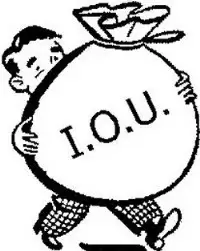Financing the spreads sale buyout: the new company will be buried in debt

According to the article “Credit Suisse, Deutsche Bank and KKR Capital Markets are expected to lead the debt financing, alongside a number of other banks that could include BNP Paribas, ING, Lloyds, RBC and UniCredit, although no banks have received a mandate as of yet.” If KKR Capital Markets is finally part of the deal that would mean that one part of KKR – the junk bond wizards on the 41st floor of the company’s Manhattan headquarters – is financing the purchase by the wizards on a different floor of the same building, and collecting a fee.
The article continues: “The debt financing is expected to include a €3.9bn-equivalent term loan — which will be mainly denominated in euros and will include some US dollars and Polish zloty — as well as around €1.050bn of senior unsecured notes and a €700m revolving credit facility, the sources said. “The debt financing is expected to launch for syndication in the first half of February, the sources said.”
This means, in simple terms, that the loan package will include an element of foreign exchange hedging which ultimately adds to the risk, as currency values can fluctuate rapidly. Unsecured notes will deliver higher interest to the buyers, since they are not backed by assets and therefore high risk. Syndication means that the banks will seek to get the loans off their books by packaging different kinds of debt into bundles and selling them on – like the bundles of mortgage debt that helped set fire to the global financial system in 2007-8. If the banks issue the loans, KKR’s own financing role will be reduced. But the banks will collect fees for underwriting the debt, and KKR will add more fees to be charged to the company.
And all of the debt will go on the books of the new company. Because the new company is itself financing 83% of the cost of its own takeover, plus interest and fees, the pressure on cash flow, and on workers, will be enormous.